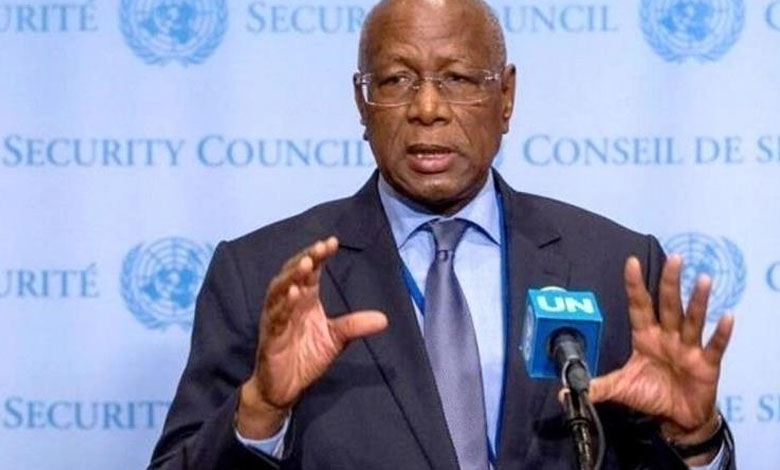Bathily outlines conditions for successful national reconciliation in Libya.. Details

National reconciliation in Libya will succeed if it is inclusive and managed by a specialized team whose work depends on the historical experience of Libya, in addition to lessons learned from other countries in the region and Africa, UN envoy to Libya Abdoulaye Bathily said during a meeting with Presidential Council deputy Abdullah al-Lafi.
In a series of tweets to Twitter, Batelliy said that he discussed with al-Lafi the next steps to achieve stability in Libya, including through the national reconciliation process, following the closing session of the preparatory meeting for the National Reconciliation Conference on Thursday.
He commended the efforts of the Presidential Council, underlining the importance of the commitment of all parties to a comprehensive national reconciliation process, and reiterated UNSMIL’s support for these efforts as a contribution to long-term stability and peace in Libya.
Patili noted that the UN mission will provide all necessary technical support to push this process forward under national leadership, in close coordination with the African Union, for the successful implementation of the comprehensive national reconciliation strategy in Libya.
For his part, Aguila Saleh, Speaker of the Libyan House of Representatives, called members of the Council to an official session next Tuesday in the city of Benghazi, in the east of the country. Following his meeting on Saturday with Khalid Al-Mishri, President of the Council of State, the French ambassador confirmed his country’s support for a consensus between the two Councils to reach a consensus on electoral laws and legislation and to achieve stability in Libya.
For his part, Al-Mishri said that he discussed on Saturday in the capital Tripoli with French Ambassador Mostafa Maharaj many of the ongoing political issues in the country, especially the recent meetings related to completing the constitutional foundation of consensus with the House of Representatives, in order to break the political deadlock and reach the elections to which the Libyan people aspire as soon as possible.
Libya is deeply divided, with two rival governments; The first is in Tripoli, where the term ended, headed by Abdul Hamid Dbeibeh, but Dbeibeh refuses to hand over power except to an elected government. The second was appointed by the Tobruk (east) parliament in February 2021, and was given a vote of confidence in March, headed by Fathi Bashagha, based in Sirte in the center of the country as a temporary headquarters after being barred from entering Tripoli.
After a 2020 ceasefire, the rival east and west parties agreed to hold elections on December 24, 2021, and formed a new unity government that was supposed to reunite divided national institutions.
However, differences between political factions, particularly over the electoral law, led to indefinite postponement, on which the international community had high hopes for stability in Libya.












